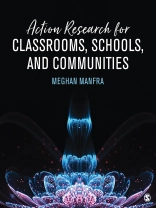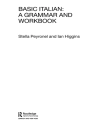Action Research for Classrooms, Schools, and Communities is a core textbook for the action research course. This book addresses the trend toward high-stakes testing and teacher accountability by focusing on understanding student outcomes. With ed TPA rapidly becoming part of the requirements for teacher certification, teacher preparation programs will increasingly be looking to measure the impact of the teacher candidate on student learning. The book focuses on the potential for action research to lead to greater understanding about student outcomes from the perspective of teachers, school leaders, and community members. There is a special emphasis on helping pre-service and experienced teachers use action research to understand their impact on student learning. There is an emphasis on using action research to understand community impacts on schools; unlike other books, this text acknowledges the complex ecology linking classrooms, schools, and the community, especially regarding issues fundamental to school reform.
Зміст
Preface
Acknowledgments
Part I: Answering the Call to Action
Chapter 1: Action Research in Contemporary Contexts
Defining Action Research
Action Research and the Context of Contemporary School Reform
Complex Educational Systems
Systems Theory
Rationale for Action Research
Defining Action Research
Main Features of Action Research
Change as the Desired Outcome
Chapter 2: Approaches to Action Research
‘Something That Matters’
Approaches to Educational Research
Identifying an Action Research Topic: Problem Posing and Reflection
Action Research Case Studies and Understanding Your Impact on Student Learning
Collaborative Action Research Projects
Action Research Across the Educational System
Methodological Approaches
Part II: Planning an Action Research Study
Chapter 3: Literature Review and Theoretical Frameworks
Planning Your Study
Reviewing Relevant Literature
Guiding Theoretical Frameworks
Selected Theories
Action Research Compared to Traditional Educational Research
Chapter 4: Research Questions and Ethics
Problem Posing: Developing Research Questions
Planning for Data Collection
Choosing Between Qualitative and Quantitative Methods
Ethical Concerns
Institutional Review Boards
Part III: Collecting and Analyzing Data
Chapter 5: Qualitative Approaches to Data Collection
Chapter Overview
Qualitative Data Collection
Chapter 6: Understanding Through Qualitative Data Analysis
Chapter Introduction
Data Analysis and Action Research
Procedures for Data for Qualitative Analysis
Understanding Validity and ‘Trustworthiness’
Chapter 7: Quantitative Approaches to Data Collection and Analysis
Chapter Overview
Working with Assessment Data
Surveys and Questionnaires
Statistical Analysis
Quantitative Content Analysis
Mixed Methods Approaches
Chapter Reflection
Part IV: Sharing Findings
Chapter 8: Reflection and the Action Research Report
Iterative Nature of Writing Up Findings
Reflection on Findings
Action Research as ‘Risky Business’
Alternatives to Traditional Written Reports
Advocating for Yourself and Others
Reflection
References
Index












